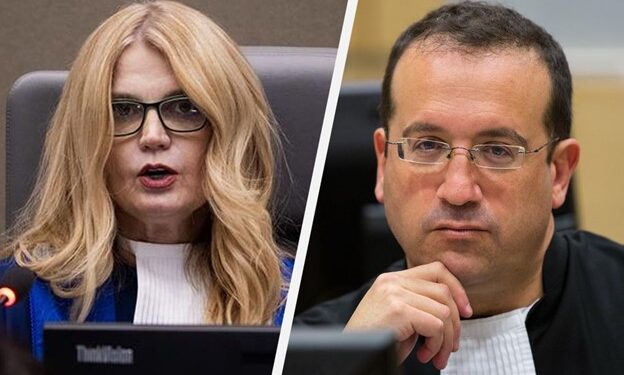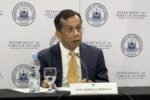Duterte’s defense lawyers challenge ICC jurisdiction

Former Philippine president Rodrigo Duterte’s defense team challenged the jurisdiction of the International Criminal Court (ICC) on the crimes against humanity allegations on his bloody war on drugs campaign.
Lawyers Nicholas Kaufman and Dr. Dov Jacobs, counsels for Duterte, said in their submission to the ICC dated May 1, 2025 that the court “is not in a position to exercise jurisdiction in the Philippines situation after the country’s effective withdrawal from the Rome Statute.”
“The jurisdictional framework of the Rome Statute is clear: A State must be a State Party at the time of the exercise of jurisdiction,” the submission stated.
The Philippines’ withdrawal from the ICC Rome Statute took effect on March 17, 2019. The crimes against humanity allegedly committed in the country covered the period between November 1, 2011 and March 16, 2019, while the Philippines was still a member of the ICC.
“When the former Prosecutor filed her request, and the Pre-trial Chamber issued its decision, more than two years later, the preconditions to the exercise of jurisdiction could no longer be, nor were they, fulfilled,” Duterte’s lawyers said.
“The Prosecutor has never demonstrated that the Court was legally authorized to exercise jurisdiction after the Philippines’ effective withdrawal from the Rome Statute.” The lawyers said.
“For its part, the Prosecution has consistently failed to justify why the Court should not apply the plain language of the Rome Statute. The Prosecution has, furthermore, systematically confused jurisdiction and the preconditions to the exercise of jurisdiction,” they added.
Duterte’s lawyers also argued the “irrelevance or inapplicability of Article 127(2) of the Rome Statute” in Duterte’s case.
According to the ICC, Article 127 of the Rome Statute states that a state’s withdrawal does not affect the jurisdiction of the Court over crimes committed while the state was a party.
Kaufman, in an earlier interview with ABS-CBN News, said he believes there is a “strong argument” for the lack of jurisdiction over Duterte’s case, given the Philippines’ withdrawal from the Rome Statute.
“I believe there is a strong argument for the lack of ability to exercise jurisdiction, given the Philippines’ withdrawal from the Rome Statute. I hope that the judges would accept my submission,” he said.
The ICC, however, earlier said in a statement after Duterte’s first appearance before the tribunal that it retains jurisdiction over crimes allegedly committed in the Philippines while the country was still a State Party to the Statute.
In its March 12 situation report on the Philippines and Duterte, the ICC said the arrest warrant against the former leader was issued after the chamber “assessed the material submitted by the Prosecution and found reasonable grounds to believe that Mr Duterte is individually responsible as an indirect co-perpetrator for the crime against humanity of murder, allegedly committed in the Philippines between 1 November 2011 and 16 March 2019.”
It added that the ICC found that “there was an attack directed against a civilian population pursuant to an organisational policy while Mr Duterte was the head of the Davao Death Squad (DDS), and pursuant to a State policy while he was the President of the Philippines. Moreover, there are reasonable grounds to believe that this attack was both widespread and systematic: the alleged attack took place over a period of several years and resulted in thousands of deaths.”
ICC spokesperson Dr. Fadi El Abdallah, in a separate interview, also said the ICC did not lose its jurisdiction on the alleged crimes against humanity committed between November 1, 2011 and March 16, 2019.
El Abdallah also cited ICC jurisprudence in the case of Burundi, where the ICC retained jurisdiction over alleged crimes committed in the east African country during its Rome Statute membership from December 1, 2004 to October 26, 2017 despite its withdrawal on October 27, 2017.
“A withdrawal only affects the future. Meaning, that the ICC would not have jurisdiction for the future after the withdrawal became effective. But not for the crimes committed allegedly during the moment where the Philippines were still, back then, a state party,” he explained.
Duterte was arrested on March 11 on his arrival from Hong Kong at the request of the International Criminal Court (ICC) as part of its probe into his “war on drugs” that defined his presidency.
The ICC warrant for Duterte’s arrest said that as president, the 80-year-old Duterte allegedly created, funded, and armed death squads that carried out murders of purported drug users and dealers.
He was brought to The Hague in the Netherlands on the same day he was arrested.
Duterte on March 14 appeared via video link before ICC judges. He is set to attend a September 23 hearing to confirm the charges against him.






